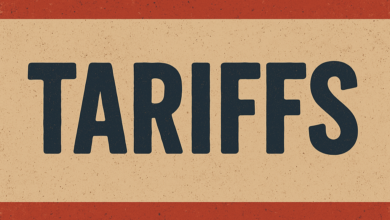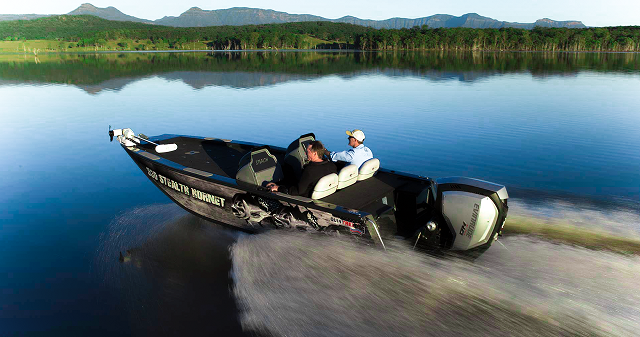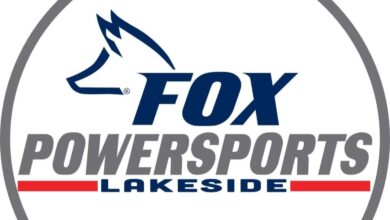Brunswick enters supplier/distributor sector
Brunswick Corp., already the leading producer of recreational marine engines and fiberglass boats, spent about $133 million this summer to become a major OEM and aftermarket parts supplier and aftermarket parts distributor.
Brunswick, which also builds exercise and bowling equipment, spent $52 million to buy aftermarket parts distributor Land ‘N’ Sea Corp., and it spent $47.9 million to buy OEM and aftermarket parts supplier Attwood Corp. It also spent $33 million to buy control of New Zealand’s Navman NZ Ltd., a designer, manufacturer and marketer of global positioning systems, (GPS)-based products and marine electronics. Navman supplies the several OEM markets including boats, along with the personal GPS and fleet management markets. Land ‘N’ Sea and Attwood now are units of Brunswick Boat Group’s new Parts and Accessories business while Navman becomes a segment of Brunswick’s New Technologies division.
“Attwood is among the largest and most respected marine parts manufacturers in North America, which will immediately give us a significant presence in this market,” said George Buckley, Brunswick’s chairman and CEO.
Attwood produces more than 3,000 leisure marine products including: pumps and accessories; ventilation equipment; navigation lighting; electrical equipment; fuel and motor equipment; marine hardware; gas springs and accessories; anchoring and mooring equipment; cockpit and interior accessories; fishing accessories; tie-downs and winch straps; trailer parts and accessories; boat covers, bimini tops and accessories and seating.
“Participating in the boat parts and accessories (P&A) segment achieves a number of strategic objectives,” Buckley continued. “It facilitates our efforts to integrate boat and engine design and engineering. It also enables us to offer a higher level of service to our dealers.
“In addition, it provides Brunswick [a New York Stock Exchange-listed company] a chance to increase sales as well as an attractive profit opportunity for Brunswick and our dealers as aftermarket P&A traditionally offers higher margins,” Buckley added.
Attwood, a Lowell, Mich.-based firm with around $56 million in annual sales, was purchased in cash by Brunswick from office furniture manufacturer Steelcase Inc.
Meanwhile, Brunswick acquired Land ‘N’ Sea, a formerly independent company headquartered in Pompano Beach, Fla., for $9 million in cash plus debt securities issued to Land ‘N’ Sea’s owners, Brunswick’s assumption of Land ‘N’ Sea’s debt and the value of Brunswick’s previous investment in the distribution firm.
Through the Land ‘N’ Sea acquisition, Brunswick believes it can help “ultimately remove the hassles from boating” by being able to deliver repair and replacement parts to boat dealerships and repair yards in a speedy manner, said Dustan “Dusty” McCoy, president of the Boat Group.
Currently, Land ‘N’ Sea, because it has 11 distribution centers around North America, can supply about 60 percent of North America’s boat dealers/repair shops on a same-day or next-day basis, said Randy Gray, vice president and general manager of Brunswick Boat Group’s P&A business. Brunswick intends to extend “Land ‘N’ Sea’s rapid delivery capabilities to virtually all of its network over time,” Gray added.
“Our dealers are a vital part of our business model,” McCoy says, “and we believe we can get closer to them and serve as their primary source for a multitude of captive and non-captive aftermarket parts and accessories by providing superior service and delivery.”
Brunswick acquired 70 percent of Navman and has the option to buy the remainder of the company by the end of 2005.
“Navman becomes an integral part of our growing presence in the marine electronics market,” Buckley said. “Navigation and related electronics are a key piece of the puzzle of how to enhance the piloting experience and living environments on a boat.
“Like Northstar Technologies, which we acquired in 2002, Navman complements our thrust into marine-based electronics and integration,” Buckley continued. “We believe marine electronics, integrated with boat and engine technologies, will ultimately make boating simpler and more enjoyable for our customers. The longer-term opportunities provided us by this acquisition are huge.”
Brunswick’s purchase of Navman included cash and the assumption of about $1 million in debt. The headquarters of Navman will remain in Auckland, New Zealand, and Peter Maire, Navman’s founder and president, remains the company’s president.
“It’s a case of business as usual for Navman except that business will be faster, bigger and better with Brunswick,” Maire added.
— Jeff Kurowski
Model dealer/manufacturer agreements sought in key states
ssociations representing boat dealers, marinas and repair yards in two key states, Florida and Michigan, want to formulate model dealer/manufacturer agreements because they believe the typical agreement is too favorable to the manufacturers.
The Marine Industry Association of Florida (MIAF) attempted unsuccessfully to work with the National Marine Manufacturers Association (NMMA) to develop a model dealer/manufacturer agreement, while the Michigan Boating Industries Association (MBIA) is attempting to get the Michigan Legislature to pass a bill modeled after the law regulating the relationship between car dealers and the automobile manufacturers in that state.
Thom Dammrich, president of the NMMA, said the NMMA could not reach an agreement with the MIAF because “a model agreement just doesn’t fit this industry.
“We did outline 15 or 20 things that should be in an agreement,” he said. “But the relationship between each boat dealer and manufacturer is unique. Dealer/manufacturer agreements should be negotiated by the individual parties.”
However, boat manufacturers are unwilling to negotiate with individual dealers because they want their dealer networks to have uniform agreements, said Joe Lewis, president of the MIAF.
The most contentious issues in dealer/manufacturer agreements include the amount of reimbursements for warranty-related work performed by the dealer and the cancellation of the agreement between the two parties, Lewis said.
“Now, you go to a dealer meeting and you’re told, ‘Here, sign this,” Lewis said. However, Lewis said it is impractical for the dealer to refuse to sign because that would waste the investment the dealer made over the years in promoting a particular brand.
Currently, dealer/manufacturer agreements must be renewed annually, but Lewis wants a model agreement that would encourage longer-term contracts.
“I believe boating is in big trouble due to the level of service we provide,” Lewis said. “It will require a big investment by the dealers [to improve service], but I don’t feel confident making that investment under a year-to-year contract.
“If I wasn’t a marina, I’m not sure I’d want to be in the boat business. Now, (the relationship between boat manufacturers and dealers) is like the feudal lords and the serfs. We [dealers] are the serfs.”
Meanwhile, Michigan — the No. 1 state in terms of boat registrations, according to NMMA data — and some other states have laws on their books regulating the relationship between boat dealers and manufacturers. However, Lewis said he is uncertain whether legislation would be a good idea in Florida, which is No. 3 in terms of boat registrations behind Michigan and California. Consequently, there is no legislation currently pending in Florida.
“I’m not thoroughly convinced government is the answer,” Lewis said. “I’d prefer not to have the government involved in my business. I don’t see a state that has it perfect, but I see states that are trying to get it right.”
Lewis added that he believes the agreements between the engine manufacturers and dealers are more fair.
“The engine guys do a good job, all they need to do is pay full retail for parts on warranty work,” he said.
In Michigan, there has been legislation on the books since 1989 regulating the boat dealer/manufacturer relationship, but it has been “ineffective and unenforceable,” according to Van Snider, the MBIA president.
Currently, there is Michigan House Bill 4808 before the House Committee on Regulatory Reform, which is modeled after the statute regulating the relationship between car dealers and the auto makers in that state.
However, the bill is not “franchise legislation,” which more closely ties a manufacturer to the dealers that sell only its products, Snider said.
House Bill 4808 does cover the key points of dealer/manufacturer agreements including: defining dealers’ market territories; warranty work reimbursements; ground rules for cancellation of the agreement and related inventory buy-back provisions and dealer ownership succession.
“The NMMA says it’s anti-consumer, but we feel that’s totally incorrect,” said Snider, who added that the MBIA does represent a few manufacturers, although the majority of its members are marina/boat yard operators and dealers. “We feel it is pro-consumer.”
— Jeff kurowski




